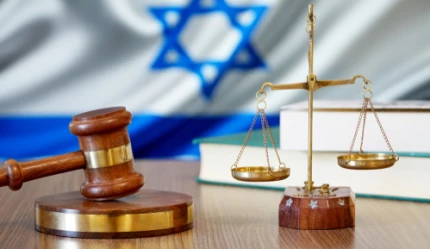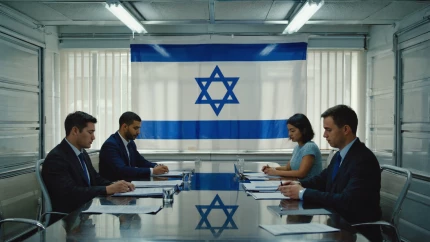Repatriation to Israel after conversion abroad
Israel’s Law of Return establishes the legal foundation for Jewish individuals worldwide to claim citizenship, extending this right to those who undergo sincere religious transformation. This legislation defines a Jew as one born to a Jewish mother or converted through recognized processes, while excluding those practicing other faiths. Crucially, the law covers first-generation converts, their spouses, children, and grandchildren—creating pathways for extended families despite evolving political debates about third-generation eligibility.
an Israeli citizenship specialist
Converts pursuing aliyah must navigate intersecting religious and bureaucratic frameworks. The state requires proof that conversion reflects genuine commitment rather than immigration convenience, leading to meticulous vetting of conversion documents and post-conversion Jewish life. Applicants with criminal histories or deemed security threats face disqualification, emphasizing Israel’s dual priorities as a sanctuary and sovereign state.
Eligibility criteria under the Law of Return
Non-Jewish spouses and adopted children qualify under derivative rights, though adoptions undergo scrutiny to prevent fictitious arrangements. Grandchildren of Jews represent the third generation with automatic eligibility—a provision facing potential legislative changes. Essentially, applicants must demonstrate uninterrupted Jewish affiliation after conversion, as lapses trigger skepticism during consular interviews.
Recognized conversions and community requirements
Israel recognizes conversions performed abroad only through established Jewish communities affiliated with major movements: Orthodox, Conservative, or Reform. The process demands immersion in a community for least nine months, encompassing 300+ hours of study on liturgy, Hebrew, ethics, and observance. Converts need documentation from recognized rabbinical courts, typically requiring three rabbis affirming ritual compliance like mikveh immersion and male circumcision.
The agency overseeing aliyah—usually the Jewish Agency—evaluates three pillars of legitimacy:
- Affiliation with globally recognized denominations like Reform or Orthodox Judaism
- Structured curricula under supervising rabbis, evidenced by signed certificates and attendance records
- Post-conversion integration into communal life, such as synagogue membership or holiday observance
Recognition disparities exist. While Orthodox conversions gain universal acceptance, Conservative and Reform conversions face challenges from Israel’s Chief Rabbinate regarding personal status matters like marriage. Nevertheless, Supreme Court rulings mandate governmental recognition of all major denominations for immigration purposes, preventing bureaucratic discrimination against non-Orthodox converts.
Converts must prepare extensive documents: conversion certificates, educational transcripts, rabbinical references, and proof of ongoing Jewish practice. The Ministry of Interior cross-checks submission authenticity, sometimes interviewing community leaders. Successful applicants receive visas within months, enabling them to immigrate and become citizens upon landing. Those lacking coherent evidence risk refusal, necessitating appeals through administrative courts—a process requiring specialized legal advocacy.
Required documentation for Aliyah after conversion
Converts pursuing aliyah must present exhaustive evidence validating their religious transformation and ongoing commitment. Core documents include the official conversion certificate issued by a recognized rabbinical court (Beit Din), detailing ritual completion like mikveh immersion and male circumcision. A letter from the supervising rabbi is essential, confirming the convert’s study duration (minimum 300 hours), curriculum content, and post-conversion integration into a Jewish community for at least nine months. Additionally, a separate letter from the community leader attesting to active participation—synagogue attendance, holiday observance, or volunteer roles—strengthens claims of sincerity.
The Ministry of Interior mandates supplementary civil records, including birth certificates, passports, and police clearance from all countries of residence since age. Converts with complex histories—such as prior religious affiliations or name changes—must submit apostilled legal documents explaining discrepancies. Medical records, particularly for infectious diseases, may be requested, though exemptions exist for conditions treatable in Israel. Crucially, all paperwork requires Hebrew translation and notarization. Delays frequently arise from incomplete submissions; thus, meticulous verification through agencies like the Jewish Agency or legal advisors is advised.
Challenges faced by converts in the Aliyah process
Navigating bureaucratic and religious scrutiny remains a formidable barrier for many converts. The process disproportionately burdens those from non-Orthodox denominations, despite Supreme Court rulings mandating equal recognition. For instance, Reform or Conservative conversions face extended vetting—sometimes spanning years—due to the Chief Rabbinate’s influence over governmental bodies. Converts report requests for “additional evidence” even after submitting exhaustive dossiers, a tactic critics argue stems from institutional bias against progressive movements. Sincerity assessments introduce subjective hurdles; officials may question motives if conversion aligns closely with immigration plans. Those with minimal post-conversion community involvement, like Lisa (Reform convert, Toronto), risk rejection despite technical eligibility, as authorities suspect opportunistic motives rather than genuine faith.
The landscape of obstacles includes:
Legal recourse exists but strains resources. Appeals through the Ministry of Interior or courts demand specialized attorneys and prolonged timelines, exacerbating emotional and financial tolls. Successful converts often credit persistence and robust post-conversion community ties—not merely legal compliance—as pivotal to overcoming these challenges.
Legal precedents and court rulings
Landmark judicial decisions have reshaped aliyah eligibility for converts, though implementation gaps persist. The 1989 Beresford ruling established that Reform conversions abroad must be recognized, prohibiting the state from investigating theological “quality”. This was reinforced in the pivotal 1995 Pessaro case, which mandated acceptance of Conservative conversions performed overseas and introduced the “recognized community” standard—requiring affiliations with major global Jewish movements. Crucially, the 2021 Reform Movement decision ended the “conversion paradox,” granting equal status to non-Orthodox conversions conducted within Israel, provided applicants held legal residency during the process.
Notably, the 2016 Jewish Renewal Movement case validated private Orthodox conversions in Israel but left diaspora equivalents in legal ambiguity, causing inconsistent approvals for cases like Rebecca’s ad-hoc beth din conversion. Despite these rulings, converts face evolving judicial headwinds. The 2024 Franks case signaled political ideology as a potential basis for exclusion, while the Chief Rabbinate continues challenging non-Orthodox recognized conversions in marital matters. Converts must prepare for protracted litigation, underscoring the gap between legal theory and bureaucratic practice in Israeli immigration.
an Israeli citizenship specialist

